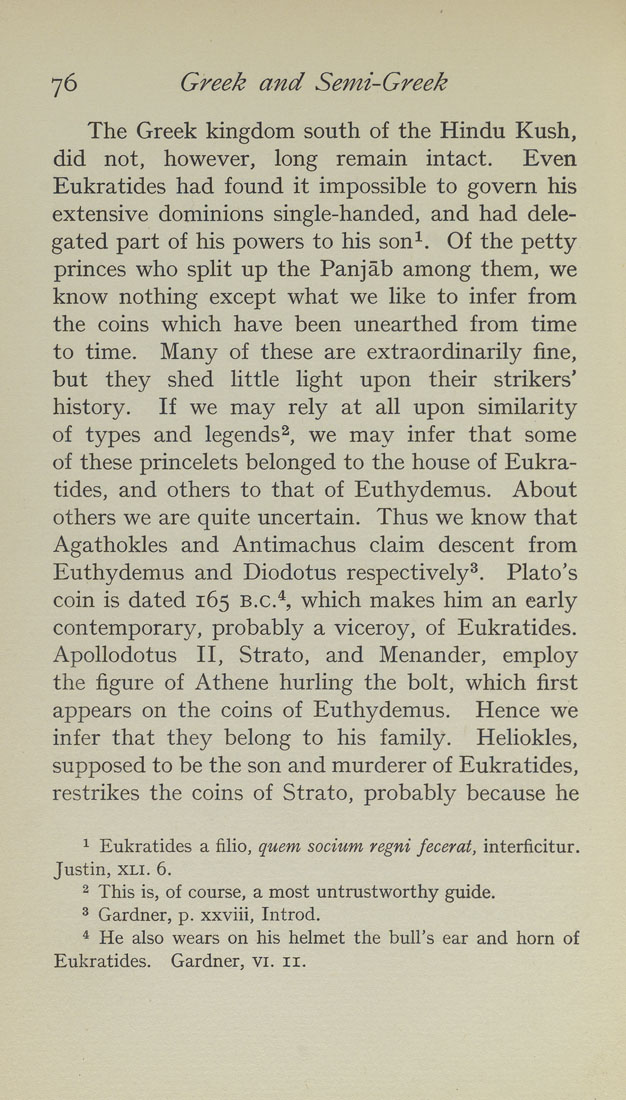76 Greek and Semi-Greek
The Greek kingdom south of the Hindu Kush,
did not, however, long remain intact. Even
Eukratides had found it impossible to govern his
extensive dominions single-handed, and had dele¬
gated part of his powers to his son^. Of the petty
princes who split up the Panjab among them, we
know nothing except what we like to infer from
the coins which have been unearthed from time
to time. Many of these are extraordinarily fine,
but they shed little light upon their strikers'
history. If we may rely at all upon similarity
of types and legends^, we may infer that some
of these princelets belonged to the house of Eukra¬
tides, and others to that of Euthydemus. About
others we are quite uncertain. Thus we know that
Agathokles and Antimachus claim descent from
Euthydemus and Diodotus respectively^. Plato's
coin is dated 165 B.c.^ which makes him an early
contemporary, probably a viceroy, of Eukratides.
ApoUodotus II, Strato, and Menander, employ
the figure of Athene hurling the bolt, which first
appears on the coins of Euthydemus. Hence we
infer that they belong to his family. Heliokles,
supposed to be the son and murderer of Eukratides,
restrikes the coins of Strato, probably because he
1 Eukratides a filio, quem socium regni fecerat, interficitur.
Justin, XLI. 6.
2 This is, of course, a most untrustworthy guide.
^ Gardner, p. xxviii, Introd.
* He also wears on his helmet the bull's ear and horn of
Eukratides. Gardner, vi. 11.
|








